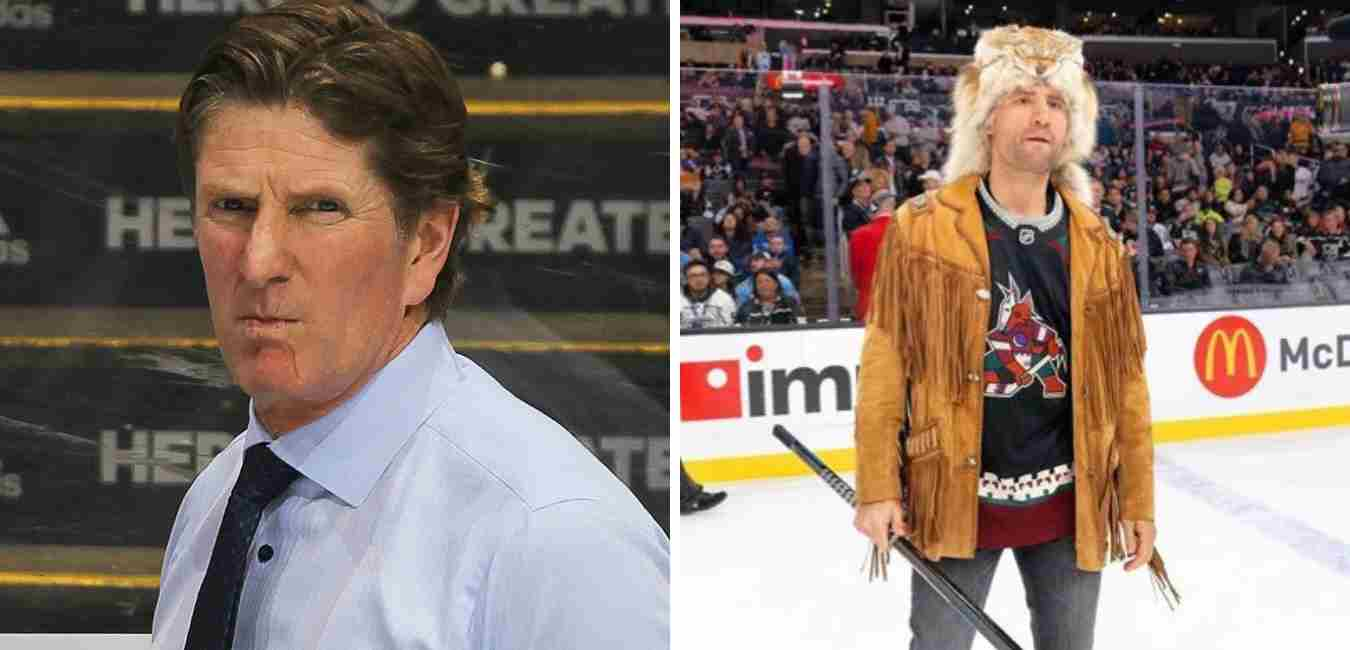“King, 75, made contact with Babcock later in the process, but he wanted to implore him to adopt a less rigid and more vulnerable coaching style, knowing how Babcock’s run with
Toronto ended in 2019. It’s an approach that King wished he had taken earlier in his career.
<cut>
“There’s an impression you get when you’re developing as a coach that the head coach has to be business-like, stern, firm,” King said. “Yeah, you’ve got time for the players, but there’s always a level of separation because you know at some point you may have to cut a player, or trade a player, or bench a player.
“Coaching, really, is not about establishing relationships as much as it’s sometimes about continually repairing relationships.”
King found that he bonded with players much more closely when he was an assistant with the Coyotes under Dave Tippett. He came to regret that he wasn’t able to foster more relationships like that earlier in his career, he said.
“I thought to myself, ‘Geez, why didn’t I just loosen up a little bit, ya know?” he said.
In 1981-82, King was coaching at the University of Saskatchewan. Babcock was one of his defensemen, though he dressed in only five games that season.
In the early 2000s, King was hired to coach the expansion Blue Jackets while Babcock was starting his pro coaching career with AHL Cincinnati in the Anaheim organization. On several occasions, Babcock would drive to Columbus to watch Blue Jackets games in Nationwide Arena when King was coach.
Last month, more than 40 years after they first met in Saskatchewan, King took Babcock to school again with an eye-opening phone call.
“We talked about a few things,” Babcock said. “But he said, ‘Make sure all those players know what a good guy (you are).
“Even now, at his age, (King) thinks I’m the kid on his team and he’s making sure I do it right. And I’ve got a lot of respect for that. I’m proud that I’ve got a relationship with Kinger over all these years and that he feels he can call me and give me a little tightening on my way into Columbus.”
King said he has no doubts that Babcock is one of the best Xs and Os coaches in the world, and he raved — like everybody else — about Babcock’s level of preparedness. But he also saw how he ran aground in Toronto, and he heard
the awful stories that surfaced just after he was fired by the Leafs.
“I don’t know all the details; I do know what I’ve heard,” King said. “In Toronto, Mike was pretty much known as a tactician, not really a players’ coach. One of the keys to coaching is to be hard to please, but easy to play for.
“Well, now more than ever, environment is paramount, and that starts with the coach. If the coach has time for the players, has time to smile a little bit, show some personality to the players, it can help a very strong situation to develop.”
King then went a step further.
“When the players want to play for you, it’s a terrific thing,” he said. “It’s really the best feeling you can have as a coach. You feel like you’re really part of it. If they’re playing in spite of you, that’s not a good thing.
“I’ve always believed that decisions are made with your head, but choices are made with your heart. You make a choice to get into a shot lane and block a shot. You make the choice to back-check that extra step or two. It makes a big difference.
“If you’re a coach that can foster that … teams making the hard choices are the ones that win.”





